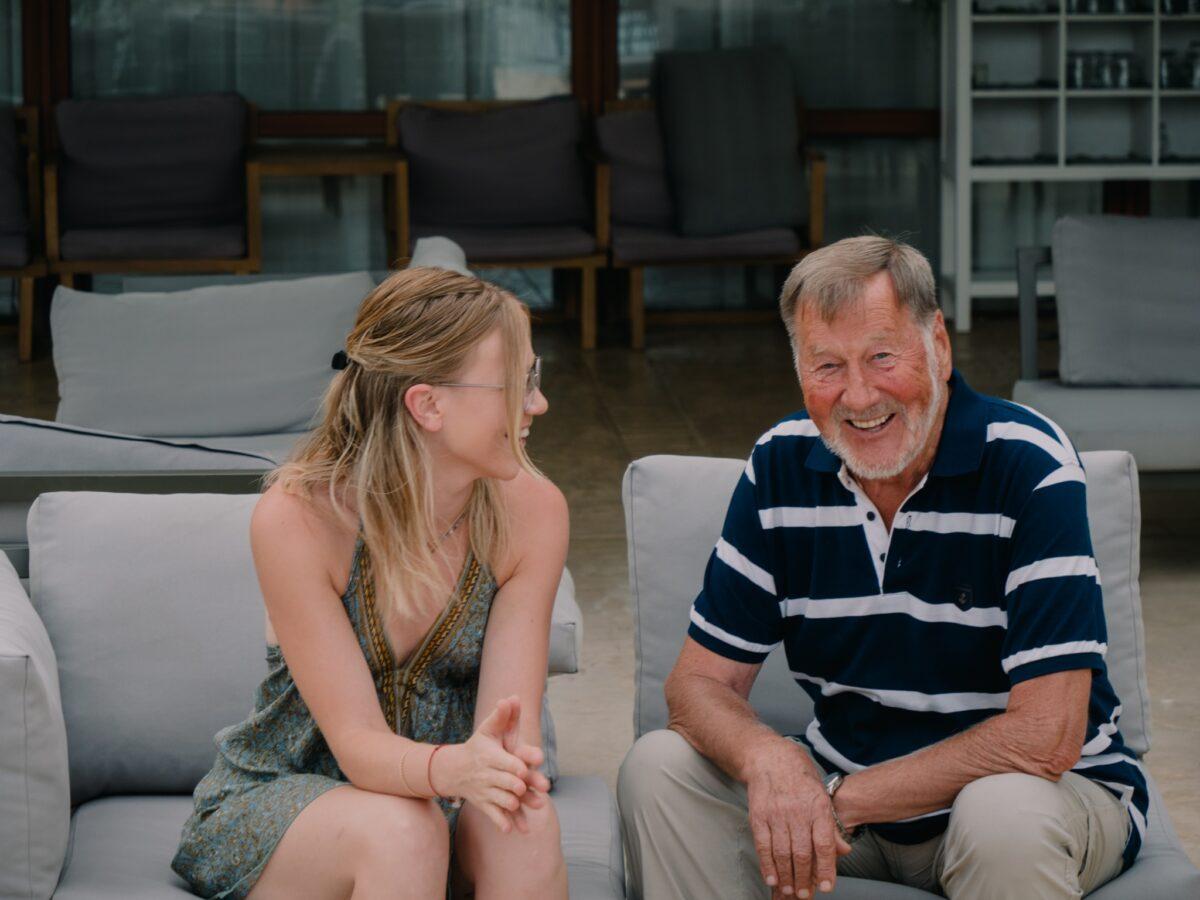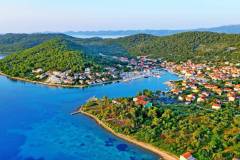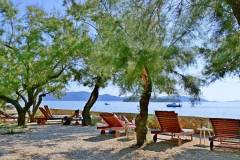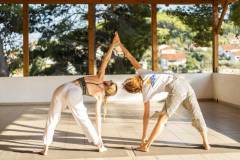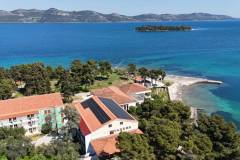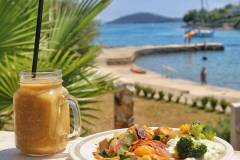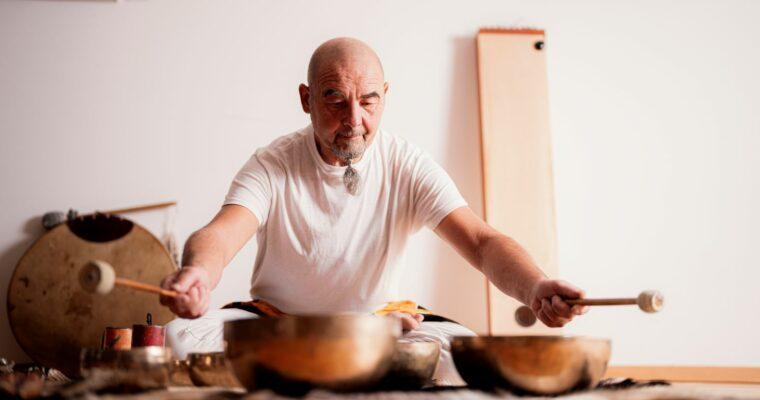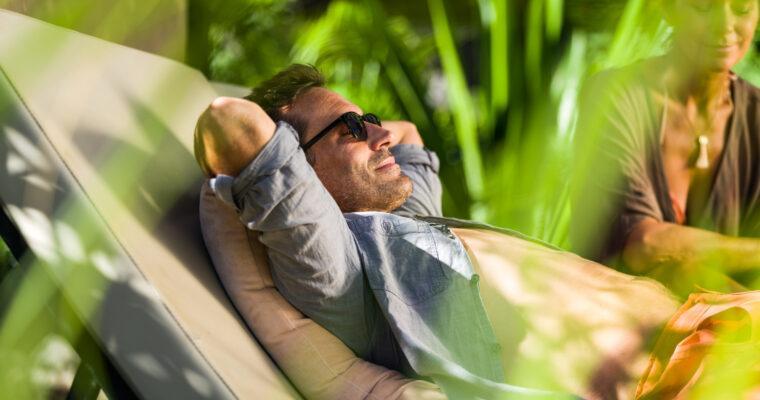Some stories resist being put into words, and my grandfather’s life is one of them. Looking back on my childhood, I realize just how unusual it was: growing up on the island of Iž, surrounded by yoga, meditation, gong baths, and people from every corner of the world. At the time, it felt normal — the rhythm of summers spent in and around Hotel Korinjak, the family business he and my father built. Only later did I begin to understand how extraordinary it all was.
A Vision Rooted in Resilience and Respect
The hotel has never been just a workplace. From the beginning, it was about creating a space where people feel accepted, where nature is respected, and where visitors leave with more than memories of the sea. What my grandfather understood long before many others was that travel can change us — if it is done with awareness.
Born on Iž, he knew the island intimately: its scarcity of water, its hard soil, and its traditions rooted in both struggle and abundance.
“On an island, you learn quickly to be resilient and resourceful.”
he often told me. “You respect what you have.” Those values — resilience, resourcefulness, respect — became the foundation of everything he created, and they remain the words I would use to describe him.
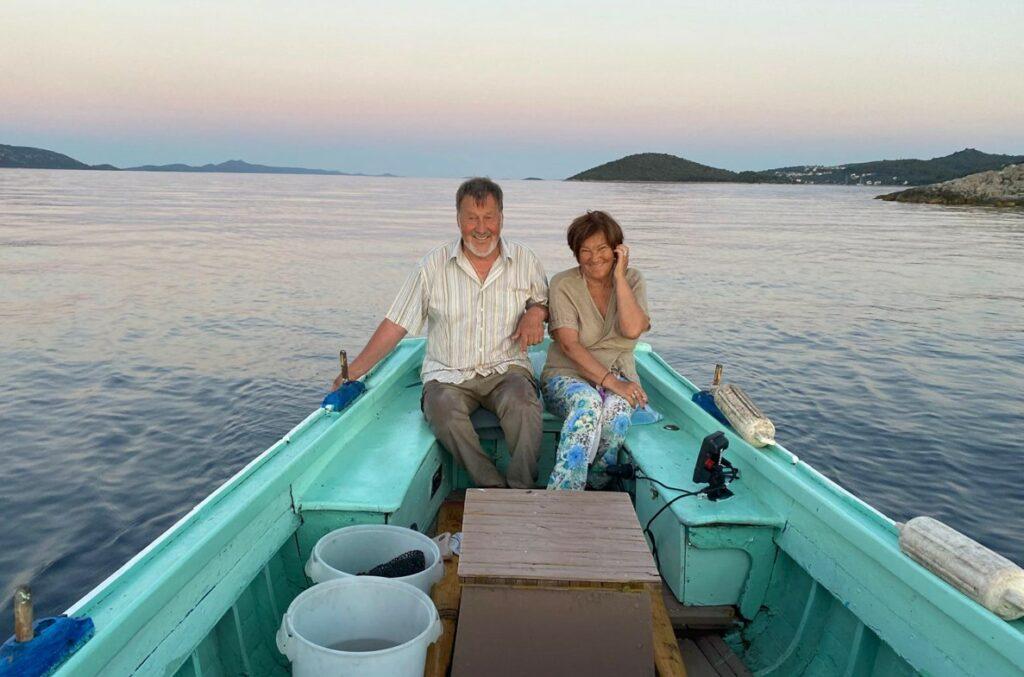
From Struggle and Abundance to a Hotel with Purpose
When he opened the first vegetarian hotel on the Adriatic coast 25 years ago, it was far from an obvious choice. “It was an opportunity and a risk I decided to take,” he once said. The idea was born out of his travels to India with his teacher, Maheshwarananda, and it was never just about food or tourism. What he wanted to create was a place where people could slow down, reflect, and explore a more spiritual way of life.
Naturally, the locals met the idea with skepticism. “They were mostly mocking us the first ten years,” my grandfather recalled with a laugh. “They remained tolerant for the next 10 years and, five years ago, accepted our concept as normal. Change comes gradually here.” While many locals struggled to see the point, international visitors were often quicker to embrace it.
“The first intention, one present to this day, is introducing people to spirituality, raising consciousness, and being humane toward all living things,”
he explained. “This is a challenging thing to do in tourism, especially when guests come only for a week or two. But what matters is opening that window of possibility, letting them know it exists. That it is something worth striving for.”
Guests feel the special spirit
That sense of possibility is what guests feel when they arrive. Many speak of being drawn not only by the vegetarian food but by the energy of the place — the sense of community, of guidance, of retreat from the noise of everyday life. Guests often say the same thing when they step through the door: “We’re home.” That simple phrase captures everything my grandfather hoped to achieve—a vacation not for luxury, but for the soul.
Even as the hotel expanded and the next generation of our family took over daily operations, its essence has remained unchanged. What we offer is not just space and programs, but connections — between people, cultures, and ourselves with the world around and within us.
Hotel Korinjak will stay vegetarian
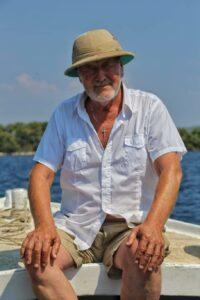
When I asked my grandfather about the future, his words stayed with me: “I am certain the hotel will stay vegetarian, and what undoubtedly deserves special attention now and in the future is educating people to move toward the more spiritual path, to change their perception of everyday life. Constant practice, making it a daily habit, begins the moment they wake up.”
As I study the island and reflect on the challenges of sustainable tourism, I see just how forward-thinking his vision was. Long before “green travel” became a trend, he understood that tourism could either exploit or protect a place. His choice was always clear. For him, and for us, it was about living with nature, not against it.
That is the inheritance we carry forward. Hotel Korinjak has evolved over the years, with each generation leaving its mark, yet the spirit remains the same: a simple, mindful place where people rediscover what truly matters. When I once asked him what the tourism industry needs most, he just laughed: “It should have more places like this, haha.”
This is a guest article from Mikela Vlahov.
